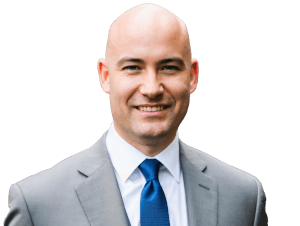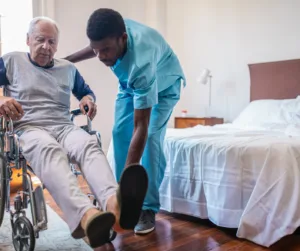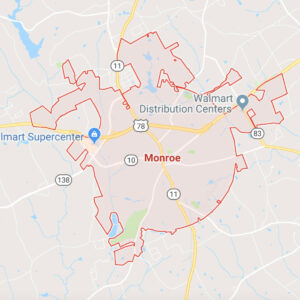When finding care for our loved ones in their golden years, we aim for the best. However, when the expected comforting care falls short, it can be daunting to address. This guide helps identify nursing home neglect, its various forms, and how specialized lawyers can assist victims and their families. With compassion and expertise, addressing these concerns and seeking justice and proper care is achievable.
How to Identify Nursing Home Neglect?
Neglect in nursing homes is a serious issue that means your loved one isn’t getting the care they need. It shows up in different ways:
- Physical Neglect: When residents don’t get help with daily tasks like moving around or eating, they can suffer physically. This lack of assistance can cause injuries or a decline in their overall health.
- Medical Neglect: Sometimes, the necessary medical care just isn’t given. This includes not following doctor’s recommendations, which can make health conditions worse or lead to injuries that could have been avoided.
- Emotional Neglect: It’s important for residents to feel cared for, not just physically but emotionally too. Ignoring their need for companionship and support can lead to feelings of loneliness and depression.
- Neglect of Basic Needs: Everyone deserves the basics: nutritious food, clean water, and a safe, clean place to live. Without these, residents’ well-being is at risk.
Neglect in nursing homes can often be traced back to specific failures in care:
- Nursing homes must follow doctors’ orders to take care of residents properly. When nursing homes fail to follow these orders, they can be held liable for the resulting injuries. This means not following treatments or medications, and not reacting to changes in health.
- Physical restraints should be used carefully and sparingly to prioritize residents’ health, safety, and happiness. Using equipment or methods that limit movement can cause problems like bed sores and poor circulation. It can also lead to emotional trauma.
Rights and Support for Nursing Home Residents
Nursing home residents have specific legal rights that ensure their safety, dignity, and quality of care. These rights include:
- Right to Quality Care: Residents are entitled to receive medical, physical, and emotional care that meets established professional standards.
- Right to Dignity and Respect: Residents should be treated with respect and dignity at all times, which includes privacy during medical treatments and personal care.
- Right to Make Personal Choices: Residents have the right to make choices about their daily life, including what to wear, what to eat, and how to spend their time.
- Right to be Informed and Participate in Care Plans: Residents have the right to be informed about their medical condition, treatments, and to participate in developing a care plan.
Understanding these rights is crucial for both residents and their families. It empowers them to advocate for proper care and to recognize when rights are being infringed. Knowledge of these rights is the first step in ensuring that nursing homes provide the level of care that they are legally and morally obliged to offer.
How Lawyers Can Help in Cases of Nursing Home Neglect?
When it comes to addressing neglect or abuse in nursing homes, specialized lawyers are invaluable allies. Here’s what they offer:
- Investigation: They dig deep into allegations of neglect, collecting evidence from medical records, witness accounts, and expert insights.
- Legal Advice: Victims and their families receive guidance on their rights and the steps they can take.
- Court Representation: If necessary, these lawyers are ready to fight for justice in court, ensuring the victim’s voice is heard.
- Negotiation: Many cases are resolved outside of court, where lawyers work to secure fair compensation.
- Emotional Support: Beyond legal advice, they provide understanding and support during these challenging times.
The role of nursing home neglect lawyers is not just limited to legal proceedings; they are advocates who stand for the dignity and rights of some of the most vulnerable members of our society. Their work ensures that nursing homes are held accountable for their actions and that standards of care are upheld for all residents.

Pursuing Legal Action for Neglect and Abuse
When seeking legal action against a nursing home for neglect in Georgia, the following steps are generally involved:
- Consultation with a Lawyer
Initially, it’s essential to consult with a nursing home neglect lawyer to discuss the case details. - Gathering Evidence
Collecting evidence such as medical records, witness statements, and any documentation of neglect or abuse. - Filing the Lawsuit
The lawyer will file a lawsuit against the nursing home, which outlines the accusations of neglect or abuse. - Seeking Compensation
The lawsuit aims to secure compensation for damages such as medical bills, pain, and suffering resulting from the neglect.

Special Considerations in Specific Cases
- Wrongful Death Cases
If a resident dies due to the wrongful act of a nursing home or its employee, a wrongful death claim can be filed by the family. The claim can ask for compensation for the resident’s whole life, including their family relationships and emotional contributions. The statute of limitations for such claims is generally two years from the date of death. - Bedsores
Cases involving bedsores focus on the nursing home’s failure to prevent or properly treat these wounds. Legal action can seek compensation for the resulting harm and negligence in care. - Malnutrition
Nursing homes can be held responsible for malnutrition among residents. Nursing homes must keep residents well-nourished and check their nutritional needs often. Neglecting these duties can result in legal action and compensation for medical bills and suffering due to malnutrition.
A nursing home neglect lawyer helps families, guiding them through the legal process. They make sure the nursing home is held accountable and residents receive fair compensation.
Reporting Nursing Home Abuse
In Georgia, the process to report nursing home abuse is structured to ensure the safety and protection of residents. Here are the steps to follow:
- Contact Law Enforcement
If your loved one is in immediate physical danger, it may be necessary to get local law enforcement involved. In some situations, this may be the only way to prevent abuse.
- Contact Healthcare Facility Regulation
To report abuse, call Georgia Healthcare Facility Regulation Office at 800-878-6442. Provide clear, specific information about the incident, including names, dates, and locations.
- Contact the Long Term Care Ombudsman
It may also be helpful to report the abuse to the office of the Georgia Long Term Care Ombudsman.
Lawyers specializing in nursing home abuse can guide families through the reporting process by:
- Advising on Legal Rights
Lawyers inform families of the resident’s legal rights and the obligations of nursing homes. - Supporting the Reporting Process
They assist in accurately documenting and reporting the abuse to the appropriate authorities. - Legal Advocacy
Lawyers can advocate on behalf of the victim, ensuring that the case is taken seriously and investigated thoroughly.
Special Cases of Nursing Home Neglect
Wandering and elopement present significant risks in nursing homes, especially among residents with dementia or Alzheimer’s:
- Signs of Risk
Indicators include a history of wandering, agitation, restlessness, and expressing a desire to leave. Unexplained injuries can also be a warning sign. - Responsibilities of Nursing Homes
Facilities are expected to take measures to prevent wandering and elopement, such as educating staff, monitoring at-risk residents, and maintaining a safe environment. - Preventive Measures
Nursing homes should have locks, alarms, and regular monitoring. Staff should be trained to respond to wandering incidents and develop individual care plans for residents at risk of wandering.
Families can seek legal recourse if a loved one has been a victim of wandering and elopement:
- Investigating Neglect Claims
A lawyer can investigate the situation and determine if the nursing home’s actions constitute neglect. - Pursuing Compensation
If neglect is found, families may be able to receive compensation for damages or file for wrongful death and survival action in the case of fatal incidents.
Understanding these special cases of neglect is essential for ensuring the safety and well-being of nursing home residents. Families should be vigilant and seek legal assistance if they suspect neglect or abuse in these forms.
Compensation and Restitution in Neglect Cases
In cases of nursing home neglect, victims and their families can seek various types of compensation to cover the damages incurred. This compensation typically includes:
- Medical Expenses: Costs for medical treatment resulting from neglect, including hospital stays, medications, and rehabilitation services.
- Pain and Suffering: Compensation for physical pain and emotional trauma suffered by the resident.
- Loss of Quality of Life: In cases where the neglect has led to long-term health consequences, compensation may cover the loss of quality of life.
- Wrongful Death: In fatal cases of neglect, families can seek compensation for the loss of their loved one, including funeral and burial costs, as well as the emotional loss of companionship.
Examples of Successful Compensation Claims
- Case of Medical Negligence
In cases where a resident suffered due to medical negligence, such as not receiving proper medication or care, families have received compensation covering the extensive medical bills and pain and suffering endured by the resident. - Bedsores and Physical Neglect
Families have successfully claimed compensation in cases where residents developed severe bedsores due to neglect, covering medical treatment costs and additional pain and suffering. - Wrongful Death
In cases where neglect led to the death of a resident, families have been awarded significant compensation for wrongful death, covering both the tangible costs like medical bills and funeral expenses, and intangible losses like emotional distress.
In each of these examples, the role of a skilled nursing home neglect lawyer was crucial in proving the neglect, quantifying the damages, and negotiating adequate compensation. These cases highlight the importance of legal intervention in holding nursing homes accountable and providing some measure of restitution to affected families.
Challenges in Nursing Home Neglect Cases
Nursing home neglect cases are often complex and sensitive, presenting a variety of challenges that require skilled navigation by experienced lawyers. Understanding these challenges is crucial for families considering legal action against a nursing home for neglect or abuse.
Common Challenges in Nursing Home Neglect Cases
- Neglect cases in nursing homes often involve difficult medical records and terms. Lawyers and doctors work together to review records and explain how the neglect harmed the resident’s health. This is vital in making a clear and compelling argument for the nursing home’s liability.
- Navigating the laws and rules for nursing homes is complicated, with both state and federal regulations. Understanding these laws is crucial in arguing a case effectively. Good lawyers need to understand these rules to find any problems at the nursing home.
- These cases involve elderly individuals who are vulnerable, which makes them emotionally charged. Lawyers working on these cases must provide emotional support to the families and remain professional.
- Many nursing home neglect cases are resolved through settlements. Experienced lawyers negotiate with nursing homes and insurance companies to ensure fair compensation. If the case goes to trial, the lawyer must be prepared to present the case compellingly before a judge or jury.
- Collecting evidence in cases of neglect in nursing homes can be challenging. To get the necessary information, we might need to use subpoenas or other legal processes. We’ll collect surveillance footage, staff records, and eyewitness accounts. Preservation of this evidence is also crucial for the success of the case.
Experienced nursing home neglect lawyers employ various strategies to navigate these complexities:
- Thorough Investigation: Conducting a comprehensive investigation to collect all relevant evidence, including medical records, surveillance videos, and staff logs. This evidence forms the backbone of the case against the nursing home.
- Collaboration with Medical Experts: Partnering with medical experts who can provide insights into the resident’s medical condition, the standard of care expected in such cases, and how the neglect contributed to the resident’s injuries or worsening health.
- Mastery of Legal and Regulatory Issues: Utilizing their deep understanding of the legal and regulatory environment surrounding nursing homes to identify any breaches in the standard of care or violations of residents’ rights.
- Empathetic Client Relationships: Building a rapport with the victim’s family, offering them support and understanding while navigating them through the legal process. This includes communicating complex legal concepts in an accessible manner.
- Strategic Negotiations and Litigation: Preparing for both settlement negotiations and trial litigation. This involves a strategic approach to negotiating settlements that truly compensate for the harm done or presenting a compelling case in court if a settlement cannot be reached.
- Evidence Management: Ensuring the proper collection, preservation, and presentation of evidence. This includes securing eyewitness testimony and expert opinions that can strongly support the case.
While nursing home neglect cases present several challenges, experienced lawyers with expertise in this area are well-equipped to navigate these complexities. Their role is crucial in ensuring that victims and their families receive the justice and compensation they deserve, and in holding nursing homes accountable for their actions.
FAQs on Nursing Home Neglect and the Legal Process
Nursing home neglect is a complex issue that raises many questions for families of residents. Understanding these concerns is vital in navigating the challenging landscape of nursing home care and legal recourse. Here, we address some of the most frequently asked questions in a manner that is informative, empathetic, and genuine.
1. What Constitutes Neglect in a Nursing Home?
Neglect in a nursing home refers to a failure to provide the necessary care and attention to residents, resulting in harm or risk to their health and well-being. This can include inadequate medical care, poor hygiene maintenance, insufficient nutrition, lack of social interaction, and failing to provide a safe environment.
2. How Can I Recognize Signs of Neglect?
Signs of neglect can vary, but common indicators include unexplained injuries, sudden weight loss, bedsores, changes in behavior like withdrawal or depression, poor personal hygiene, and unsanitary living conditions. It’s important to regularly communicate with your loved one and observe any changes in their health or behavior.
3. What Should I Do If I Suspect Neglect?
If you suspect neglect, document your observations and report them to the nursing home management. You should also consider reporting to state regulatory agencies. Consulting with a nursing home neglect lawyer can provide guidance on how to proceed, including understanding your legal rights and options.
4. Can a Nursing Home Be Sued for Neglect?
Yes, nursing homes can be sued for neglect. If neglect leads to injury or harm, the nursing home can be held legally responsible. This may involve a lawsuit for compensation for medical expenses, pain and suffering, and other damages.
5. What Is the Role of a Lawyer in Nursing Home Neglect Cases?
A lawyer specializing in nursing home neglect can help investigate the claim, gather evidence, and provide legal representation. They can navigate the complexities of the legal system, negotiate settlements, or take the case to trial if necessary. They also provide invaluable support and guidance to the families throughout the process.
6. How Long Does a Neglect Case Take to Resolve?
The duration of a nursing home neglect case can vary depending on the complexity of the case, the extent of the evidence, and whether the case is settled out of court or goes to trial. It can range from several months to a few years.
7. What Types of Compensation Are Available in These Cases?
Compensation in nursing home neglect cases can include medical bills, costs for future care, pain and suffering, and, in some cases, punitive damages. In wrongful death cases, compensation may also cover funeral expenses and loss of companionship.
8. How Can I Prevent My Loved One from Experiencing Neglect?
Prevention involves regular visits, monitoring their care, asking questions about their treatment and care plan, and staying in communication with nursing home staff. Being an active participant in the care process can help identify and prevent potential neglect.
9. Is There a Time Limit for Filing a Neglect Case?
Yes, there is a statute of limitations for filing neglect cases, which varies by state. It is important to consult with a lawyer as soon as possible to ensure your case is filed within the legal timeframe.
10. Can Families Receive Compensation for Emotional Distress?
In some cases, families may receive compensation for their own emotional distress, particularly in cases of wrongful death or severe neglect. This aspect of compensation is determined on a case-by-case basis.
If you’re facing challenges with nursing home care and seeking guidance on ensuring the best for your loved one, feel free to explore our guides and resources. For advice and support, contact an lawyer who will help you every step of the way.








